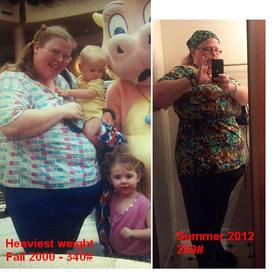why dieting is not just about calories in and calories out

bhankiii
Posts: 217 Member
http://www.ncbi.nlm.nih.gov/pmc/articles/PMC506782/
A review of simple thermodynamic principles shows that weight change on isocaloric diets is not expected to be independent of path (metabolism of macronutrients) and indeed such a general principle would be a violation of the second law. Homeostatic mechanisms are able to insure that, a good deal of the time, weight does not fluctuate much with changes in diet – this might be said to be the true "miraculous metabolic effect" – but it is subject to many exceptions. The idea that this is theoretically required in all cases is mistakenly based on equilibrium, reversible conditions that do not hold for living organisms and an insufficient appreciation of the second law. The second law of thermodynamics says that variation of efficiency for different metabolic pathways is to be expected. Thus, ironically the dictum that a "calorie is a calorie" violates the second law of thermodynamics, as a matter of principle.
A review of simple thermodynamic principles shows that weight change on isocaloric diets is not expected to be independent of path (metabolism of macronutrients) and indeed such a general principle would be a violation of the second law. Homeostatic mechanisms are able to insure that, a good deal of the time, weight does not fluctuate much with changes in diet – this might be said to be the true "miraculous metabolic effect" – but it is subject to many exceptions. The idea that this is theoretically required in all cases is mistakenly based on equilibrium, reversible conditions that do not hold for living organisms and an insufficient appreciation of the second law. The second law of thermodynamics says that variation of efficiency for different metabolic pathways is to be expected. Thus, ironically the dictum that a "calorie is a calorie" violates the second law of thermodynamics, as a matter of principle.
0
Replies
-
what the hell did you just say?0
-
what the hell did you just say?
O good, I was afraid it was just me!0 -
 0
0 -
what the hell did you just say?
O good, I was afraid it was just me!
Oh thank god, I'm not the only one...............I think maybe he was speaking in greek or something.0 -
No, a calorie IS always a calorie. Different metabolic pathways have different caloric requirements for processing calories, but the calorie itself is still a calorie. It takes much more effort for me to curl 75 pounds than it does for me to bench press 75 pounds, does that mean a pound is no longer a pound?
Calories in and calories out are two different processes, and are usually mutually exclusive, as calories out happens constantly, regardless of calories in, and the metabolic differences due to normal variations in diet are not enough to have any kind of actual effect on overall metabolic rate. TEF pretty much averages out to be the same over the long term, regardless of short term changes.
The fallacy your making is treating calories in and calories out as the same system, when they aren't.0 -
No matter how consistent you are re: your calorie intake and exercise, losing weight is not a linear series of events.
A -500 net for 7 days will not necessarily result in a pound lost. Could be more, could be less.0 -
Seems like an overly long and unnecessarily complicated way of stating that protein has a higher thermic effect than carbohydrates and fat, which we all knew already.................right?0
-
YES dieting is not JUST calories in and calories out.......0
-
I don't know what to say.... it is a very general article... Their research methods are questionable (i.e. They discuss their research only by calling it "a small pilot study" so it is probably safe to assume that their statistics won't transfer from study sample to population without a large margin of error)
Second "a calorie is a calorie" is usually intended to mean "it doesn't matter how you get your calories as long as you meet macros and are under your limit...
Third... Are they recommending that low carbs diets are bad? I'm not sure I'm following (could be because I'm on my phone and it was hard to read the article) or that they are a new thing our ancestors didn't have processed sugars and the such... I think that most people who suggest "low carb" will agree that the carbs you eat should be whole carbs unprocessed... And that there are carbs that are *better* for you0 -
1. They're not actually reporting any original research. Just providing a poorly-worded theoretical framework for understanding existing research.
2. They're arguing that "a calorie is a calorie" is usually intended to mean "it doesn't matter how you get your calories as long as you are under your limit." Their point is that in a living organism with irreversible processes, the macronutrient source of calories is important.
3. They are not recommending that low carb diets are bad. Just the opposite. They are arguing that low carb diets are effective and explaining (poorly) a possible reason why.0
This discussion has been closed.
Categories
- All Categories
- 1.4M Health, Wellness and Goals
- 398.2K Introduce Yourself
- 44.7K Getting Started
- 261K Health and Weight Loss
- 176.4K Food and Nutrition
- 47.7K Recipes
- 233K Fitness and Exercise
- 462 Sleep, Mindfulness and Overall Wellness
- 6.5K Goal: Maintaining Weight
- 8.7K Goal: Gaining Weight and Body Building
- 153.5K Motivation and Support
- 8.4K Challenges
- 1.4K Debate Club
- 96.5K Chit-Chat
- 2.6K Fun and Games
- 4.8K MyFitnessPal Information
- 12 News and Announcements
- 21 MyFitnessPal Academy
- 1.6K Feature Suggestions and Ideas
- 3.2K MyFitnessPal Tech Support Questions








